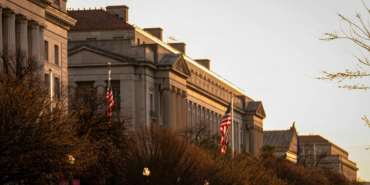America Faces Workforce Crisis If Legal Immigrants Are Pushed Out

A potential overhaul of US immigration policies under President Donald Trump is poised to trigger significant disruptions across critical sectors of the American economy.
Businesses and communities heavily reliant on immigrant labour are bracing for major workforce shortages as the administration signals a tightening of border controls and the potential revocation of legal protections currently allowing hundreds of thousands of migrants to work in the country. The looming changes are already casting a shadow over industries such as construction, agriculture, meatpacking, and food processing, which have come to depend on newly arrived immigrants to sustain their operations.
The dual impact of stripping legal protections from migrants already residing in the US and aggressively clamping down on border crossings is expected to exacerbate existing labour challenges, leaving employers scrambling to fill essential positions. During President Joe Biden's tenure, immigration played a crucial role in mitigating labour shortages and contributing significantly to job creation since 2020. Many workers who entered the US under humanitarian provisions—primarily from Cuba, Haiti, Nicaragua, and Venezuela—provided critical support in industries struggling to find domestic employees.
However, Trump's policies now put over 800,000 such individuals at risk of losing their temporary protections and work permits. The reduction in border crossings further compounds these issues. In March, US Border Patrol arrests of undocumented individuals reached approximately 7,000—a historic low not seen since the 1960s. In comparison, under Biden, illegal crossings averaged nearly two million annually, with many granted temporary permission to remain and work.
The combined impact of these restrictions could deal a serious blow to businesses that rely on immigrant labour to fill essential positions. Without this workforce, industries already experiencing hiring challenges may find themselves struggling to remain viable. Nebraska, for example, finds itself at the epicenter of these concerns. The state currently has approximately 50,000 job openings but only 32,000 unemployed residents—a gap that has been partially filled by newly arrived immigrants. The state’s economic stability now hangs in the balance as employers prepare for the possibility of losing workers critical to their operations.
"We are ground zero for these issues," said Bryan Slone, the outgoing executive director of Nebraska’s Chamber of Commerce & Industry. "We have some of the lowest unemployment rates in the country. We don’t have people on the sidelines who can fill jobs."
One major manufacturing plant in the state reports that nearly 30% of its workforce is covered by temporary protections such as humanitarian parole and Temporary Protected Status (TPS). Losing these employees would be catastrophic. "Without those people, we would be in a world of hurt," said one factory manager, speaking on the condition of anonymity to avoid scrutiny from immigration authorities.
Similar concerns have emerged in other communities. In Springfield, Ohio, around 15,000 Haitians—many protected under TPS—have arrived in recent years, boosting the local labour force. However, immigration has become a highly charged political issue, particularly after Trump and other officials amplified false claims that migrants were harming local pets. The controversy has placed immigration at the forefront of national political debate.
Despite the administration’s hardline rhetoric, deportation numbers remain modest. Within Trump’s first 100 days back in office, approximately 65,000 migrants were removed—far short of the pace required to achieve his stated goal of one million deportations within the year. Immigration authorities have primarily focused on high-profile removals, including targeting alleged gang members, as showcased in polished media campaigns.
However, if mass deportations and legal status cancellations proceed at a more aggressive scale, businesses fear the fallout could be severe. Immigration has played a crucial role in stabilizing labour markets, helping control wage pressures amid high inflation. Without new arrivals, the workforce would have largely stagnated, creating further economic instability.








Add new comment